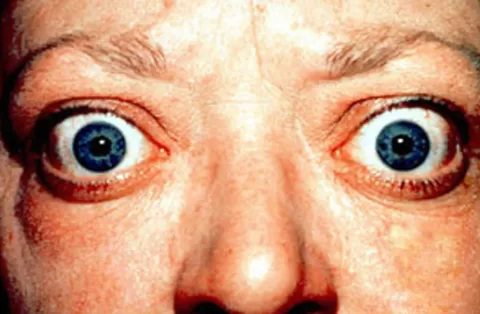Psilocybin migraine is an emerging topic of interest in the realm of migraine treatment, as researchers explore the potential benefits of this naturally occurring hallucinogen. Derived from magic mushrooms, psilocybin effects have shown promise in helping alleviate the frequency and intensity of debilitating migraines for some individuals. Although traditional methods of managing headaches often involve pharmaceuticals, the exploration of psychedelics for headaches is paving the way for alternative, natural migraine remedies. Initial studies suggest that psilocybin may not only reduce migraine occurrences but also serve as a transformative approach to understanding the underlying causes of these debilitating conditions. As scientific inquiry continues, the relationship between hallucinogens and migraines may unlock new pathways for effective treatment.
The concept of utilizing psilocybin as a remedy for migraine relief is gaining traction, highlighted by various terms including psychedelics, hallucinogenic compounds, and natural therapies. These alternative solutions are being examined for their potential impact on reducing the frequency and severity of migraine attacks. While traditional treatments may primarily rely on over-the-counter pain relievers or prescription medications, the exploration of these mind-altering substances offers a fresh perspective on migraine management. Psychedelic substances, particularly those derived from mushrooms, are being investigated for their unique properties that may aid in providing relief to those who suffer from chronic headaches. This evolving area of research teases the possibility of novel migraine treatments that address not only symptoms but also underlying psychological and physiological triggers.
Understanding Psilocybin and Its Effects
Psilocybin is a naturally occurring compound found in certain types of mushrooms, commonly referred to as magic mushrooms. This psychedelic substance has gained attention in recent years due to its potential effects on various health conditions, including mental health disorders and migraines. Users often report an altered state of consciousness, including vivid visual and auditory hallucinations, which can have both therapeutic and challenging outcomes. While psilocybin is known to enhance mood and perception, the relationship between psilocybin and migraines is complex, as it can either provide relief for some individuals or induce headaches in others.
As a hallucinogen, psilocybin affects serotonin receptors in the brain, which are critical to mood regulation and pain perception. This interaction is thought to play a significant role in how psilocybin might modulate migraine conditions. By altering the way the brain processes pain signals and emotional responses to pain, psilocybin may reduce the frequency and intensity of migraine attacks for some individuals. However, more comprehensive studies are needed to understand its true efficacy and the mechanisms behind its effects on migraine treatment.
Psilocybin Migraine: A Promising Treatment Option
Recent exploratory studies indicate that psilocybin could be an innovative treatment for migraine sufferers. In a controlled setting, small trials have shown that psilocybin can lead to a significant decrease in migraine days for participants who received the treatment. For example, some studies indicated that around 80% of participants experienced a notable reduction in their migraine frequency after administering psilocybin, suggesting it may help in migraine treatment by altering neurochemistry in a way that mitigates headache episodes.
Moreover, the findings imply that psilocybin may not only serve as an acute treatment but also as a preventive measure for those susceptible to chronic migraines. As researchers delve deeper into psilocybin’s properties and mechanisms, it could unlock new pathways for understanding and treating migraines more effectively. However, while these results are encouraging, the studies have been small and thus underscore the need for large-scale trials to validate psilocybin’s safety and efficacy in migraine management.
The Risks of Psilocybin Usage
Although psilocybin presents a potential avenue for migraine treatment, it comes with associated risks. Various studies have highlighted that psilocybin can induce negative psychological reactions, such as paranoia, anxiety, and panic, which may be exacerbated in individuals with preexisting mental health conditions. Additionally, because psilocybin is still considered a Schedule I substance in many areas, its use can lead to legal repercussions, which deters some individuals from exploring its therapeutic potential.
Physical side effects following psilocybin use may include increased heart rate and blood pressure, as well as nausea. In some cases, users report experiencing headaches, particularly after higher doses. These adverse reactions emphasize the importance of medical supervision and careful dosage control. A thorough discussion with a healthcare professional before considering psilocybin as a treatment option is crucial to navigating these risks and ensuring safety.
Alternative Migraine Treatments: Beyond Psilocybin
While psilocybin shows exciting potential for treating migraines, several other treatment options are available that have been proven effective for many individuals. Medications such as triptans are commonly prescribed, providing relief by constricting blood vessels around the brain and addressing migraine-related symptoms. Furthermore, over-the-counter options like NSAIDs can assist in managing mild to moderate migraine pain.
In addition to pharmaceutical interventions, lifestyle changes can serve as powerful preventative measures for migraine sufferers. Techniques such as stress reduction, maintaining a regular sleep schedule, and adhering to a balanced diet may significantly reduce the frequency and intensity of migraine attacks. Keeping a migraine diary can also help individuals identify and avoid specific triggers, empowering them to take control of their health.
The Role of Natural Remedies in Migraine Management
Exploring natural migraine remedies has become a popular avenue for many individuals seeking to alleviate their symptoms without relying solely on medications. Natural ingredients such as magnesium, riboflavin, and coenzyme Q10 have been researched for their potential benefits in reducing migraine frequency. Moreover, herbal supplements like butterbur and feverfew have garnered attention due to their traditional usage in managing headaches.
Incorporating lifestyle changes such as regular exercise and a healthy diet also plays a critical role in employing natural approaches for migraine management. Techniques such as yoga and mindfulness meditation not only help reduce stress but may also improve overall well-being, potentially leading to fewer headache episodes. Adopting a holistic approach that combines both conventional and natural remedies provides a comprehensive way to tackle migraines.
The Future of Psilocybin Research in Migraine Treatment
The evolving landscape of psilocybin research holds promise for the future of migraine treatment. As societal attitudes towards psychedelics shift and more states begin to decriminalize psilocybin use, the opportunity for extensive research increases. Numerous clinical trials are already in progress, aimed at understanding the safety, dosage, and effectiveness of psilocybin for migraines and other conditions.
Insights from these studies will be pivotal in establishing guidelines for its use, shaping patient access, and informing medical professionals about the potential role of psilocybin in migraine therapy. If established as an effective treatment option, psilocybin may revolutionize how migraines and other chronic headache conditions are approached, providing new hope for those with limited treatment options.
Lifestyle Changes for Migraine Prevention
Implementing lifestyle changes plays a vital role in the management and prevention of migraine attacks, complementing any medical treatments, including the potential use of psilocybin. Regular physical activity, adequate sleep, and stress management techniques can notably contribute to reducing headache frequency. For instance, individuals practicing mindfulness or using relaxation techniques like yoga have reported fewer migraine days.
Tracking personal migraine triggers through a headache diary also allows individuals to identify specific patterns, leading to more tailored prevention strategies. Avoiding possible triggers like certain foods, excessive screen time, and environmental stressors can empower individuals to minimize their risk and take control of their migraine management.
Challenges in Migraines: Individual Variability
Migraine impacts individuals differently, emphasizing the need for personalized treatment strategies. What may work for one person could be ineffective for another due to genetic, environmental, and lifestyle factors. This variability results in challenges for healthcare professionals in selecting appropriate treatment plans, particularly for emerging options like psilocybin, whose benefits and risks still require further exploration.
Understanding that migraines are complex and multifactorial conditions reinforces the importance of a tailored approach. Ongoing communication between patients and healthcare providers, combined with an openness to explore new treatment possibilities and lifestyle adaptations, is crucial for successful migraine management. As research into alternatives like psilocybin progresses, it will be essential to consider individual differences in response to treatments.
Understanding the Biological Mechanisms of Migraines
To comprehend how psilocybin might affect migraines, it’s essential to understand the biological mechanisms underlying migraine attacks. Migraines are thought to involve changes in the brainstem and imbalances in neurotransmitters such as serotonin, which psilocybin directly influences. The release of inflammatory mediators and alterations in blood flow during a migraine episode further complicate the condition, providing a basis for why some treatments, including psychedelics, may be effective.
Research suggests that by interacting with serotonin receptors, psilocybin may help restore balance to these neurotransmitter systems, potentially diminishing the severity and frequency of migraine attacks. Investigating these mechanisms will not only clarify how psilocybin works but also pave the way for developing more targeted treatments that can effectively mitigate migraine symptoms.
Frequently Asked Questions
What are the potential Psilocybin effects on migraine treatment?
Psilocybin has shown potential effects on migraine treatment in preliminary studies. Some research indicates that it may help reduce the frequency and intensity of migraine attacks. Participants in studies reported significant reductions in migraine days after taking psilocybin, suggesting its promise as a treatment option, although further research is needed.
How does Psilocybin relate to natural migraine remedies?
Psilocybin may be considered a natural remedy for migraines due to its derivation from mushrooms. Some individuals have reported that psilocybin helps alleviate migraine symptoms and reduces the frequency of attacks, aligning it with other natural remedies that aim to improve headache management.
Can hallucinogens and migraines be connected through Psilocybin use?
Yes, hallucinogens like psilocybin are being explored for their connection to migraine management. While psilocybin can induce headaches in some, it has shown the potential to reduce migraine frequency in others, making its effects on migraines a subject of interest in migraine treatment research.
What role do psychedelics for headaches, particularly Psilocybin, play in modern medicine?
Psychedelics, including psilocybin, are gaining attention in modern medicine for their potential role in headache treatment. Research is investigating how psilocybin could serve as a therapeutic option for chronic migraines, offering a new avenue for patients who do not respond to conventional treatments.
Are there risks associated with using Psilocybin for migraine treatment?
Yes, there are risks associated with using psilocybin for migraines, such as potential headaches, increased anxiety, or adverse psychological effects. While some people may benefit from its usage, others could experience negative side effects. It’s important to approach psilocybin therapy under medical supervision.
What current research suggests about psilocybin as a migraine treatment?
Current research suggests that psilocybin may help reduce the frequency of migraines, with participants in studies reporting marked improvements. However, the findings are preliminary, and more extensive studies are needed to confirm its efficacy and safety as a migraine treatment.
Can Psilocybin induce migraines in some individuals?
Yes, while psilocybin may help some individuals reduce migraines, it can also induce headaches in others. Higher doses have been associated with increased headache reports, indicating it may not be suitable for everyone suffering from migraines.
What do expert studies highlight about Psilocybin for migraine management?
Expert studies highlight the potential of psilocybin in migraine management, reporting significant reductions in migraine days among some participants. However, these studies are small and emphasize the need for more rigorous research to better understand its benefits and risks.
How does psilocybin compare to traditional migraine treatments?
Psilocybin presents a different approach compared to traditional migraine treatments, such as NSAIDs and triptans. While conventional medications aim to alleviate migraine symptoms, psilocybin may offer preventive effects. Its unique mechanism, focusing on the brain’s pathways, requires further investigation to fully understand its comparative effectiveness.
| Key Points | Details | Implications | |
|---|---|---|---|
| What is Psilocybin? | A naturally occurring psychedelic substance found in certain mushrooms, used for centuries in spiritual practices. | ||
| Potential Benefits for Migraines | May help prevent migraines; small studies show reduction in migraine days for some users. | ||
| Side Effects and Risks | Can induce headaches in susceptible individuals; other risks include anxiety, paranoia, and elevated heart rate. | ||
| Treatment Options | Acute treatments (NSAIDs, triptans) and preventive treatments (beta-blockers, antidepressants) are available for migraines. | ||
| Lifestyle Modifications | Stress management, physical activity, and avoiding triggers can aid in migraine prevention. | ||
Summary
Psilocybin migraine treatment is emerging as a promising option for individuals suffering from migraines. Research indicates that psilocybin has the potential to reduce the frequency of migraine attacks, although results can vary between individuals. While some may experience adverse effects such as headaches after using psilocybin, for others, it can be a beneficial preventive measure. Therefore, it’s essential to manage migraines effectively through either pharmaceutical interventions or lifestyle adjustments, ensuring a holistic approach to this debilitating condition.
The content provided on this blog (e.g., symptom descriptions, health tips, or general advice) is for informational purposes only and is not a substitute for professional medical advice, diagnosis, or treatment. Always seek the guidance of your physician or other qualified healthcare provider with any questions you may have regarding a medical condition. Never disregard professional medical advice or delay seeking it because of something you have read on this website. If you believe you may have a medical emergency, call your doctor or emergency services immediately. Reliance on any information provided by this blog is solely at your own risk.







